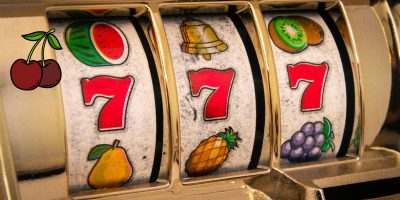
fruit slot
The early 18th-century slot machines featured slot machine numbers and symbols from the deck, which had more in common with poker than they do today.
In 1913, as a rebranding tactic from earlier dense slot machine fraud, the Bell-Fruit Gum Company opted for an innocent and colorful fruit image, similar to a children’s game. , to guarantee rewards and rewards. Slot machines of this era often dispensed cherries, bananas, and pineapple-flavored treats from these machines. However, rewards soon diversified into alternatives, subject to device owner availability.
Fast-forward to the 21st century; Online fruit slots are constantly looking to diversify casino games. For example, Play’n Go’s Inferno Star combines cosmic star explosions with fruit slots.
In the early 1900s, anti-gambling laws gained momentum. Slot machines or one-armed bandits are increasingly devouring people’s lifetime savings. As these anti-gambling laws spread across the United States, manufacturers changed the slot machines, replacing the poker-influenced image of Charles Fey’s Liberty Bell with fruit symbols that dispense gum su when a player makes a match on a slot machine’s payline.
Bettors can now gamble with gum instead of cash when three of the same fruit line up in a row. The cherry is the first scatter symbol and can appear in any position on the slot machine, as long as the three cherries line up, will be considered a win. Cherries, melons, plums, and pineapples are classic fruity themes still in use today, inspired by gummy flavors.
The mastermind behind the idea of converting a slot machine into a slotted gum dispenser was O. D. Jennings, the head of the Novelty Industry Company. Slot machines have found their way into convenience stores while circumventing gambling laws. It inspired a series of new inventions in slot machines as the technology had not yet been patented. Slot machines grow faster, as do larger payouts.
The best online casinos adhere to fair play by using a random number generator (RNG), a requirement by law. RNG is a computer algorithm used to randomize winning chances, used in fruit and regular slot machines. RNG can perform hundreds of calculations within a second. The sequence of numbers generated by the RNG matches the symbols on the rotating gamek axis. This algorithm determines if the player receives the payout. Each symbol on the reels has an unequal weight value. Unequal weights mean that a lower weighted symbol is more likely to appear than a higher weight symbol (e.g. bonus or free spins). By law, game operators are often required to check their RNGs in a timely manner to maintain fair play. The auditor is an independent third party to ensure gamek neutral results.
Since fruit slots are just like regular slots, different slot strategies will suit them. These strategies include choosing a game based on its RTP and variance ratio.
It is important to note that the fruit slots do not get hot or cold. Their payout depends on their RNG, variance, and RTP. For example, if you are playing fruit slots games with high odds, you will likely win less than those with low odds.
FRUIT: FRUIT MACHINE IN UK
Colorful, entertaining, animated fruit slot machines were popular during the 50s until the 80s. Bettors were attracted by the sight, sound and payouts of the machines. this when matching fruit symbols.
Despite what they may look like, fruit is technically not a slot machine related to a game based on luck. Regulation in the UK requires game operators to include an element of skill in the fruit to maintain legitimacy. Unique to the UK, ‘hold’ and ‘nudge’ have been introduced into slot machines for players to show off their skills. Hold in slot machines is a feature that allows players to switch with non-static reels to improve their results. Nudge allows players to move the reels up or down by a position in the hope of a responsible gaming favorable arrangement of symbols.